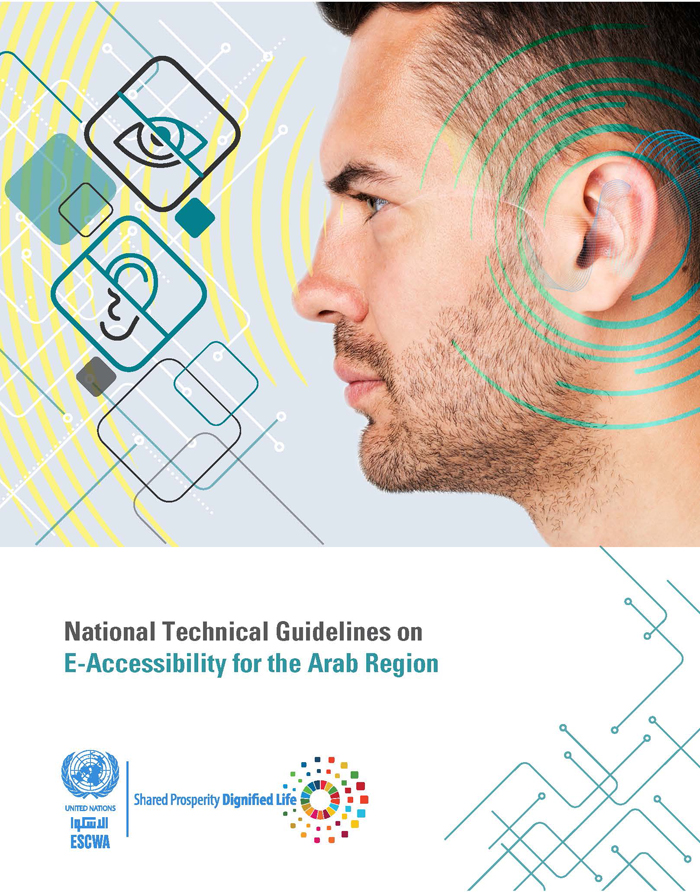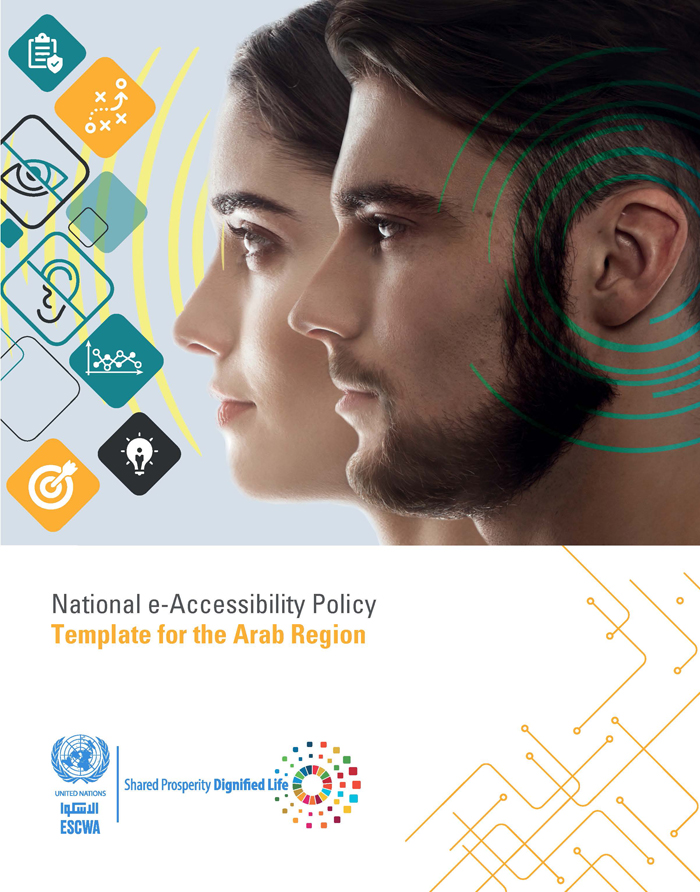Mr. Ahmed Al-Raghy, Senior Advisor at the ITU Arab regional office presented ITU’s opening remarks on behalf of Mr. Adel Darwish, Director of ITU Arab regional office. Mr. AlRaghy welcomed participants to this first of its kind event, the result of a fruitful collaboration between ITU and ESCWA. The event comes as part of the “Digital Inclusion Week” which ITU organizes with UNESCO for the fifth year in a row. Al-Raghy noted that the hope from these events is to support digital inclusion in the Arab Region in collaboration with all stakeholders. In the context of the global COVID-19 pandemic, digital inclusion becomes even more important to ensure social justice and equal access to services. He emphasized that persons with disabilities comprise 15% of the world population, and 80% of them live in developing countries. He noted that technology has great potential to remove the barriers that hinder the inclusion of persons with disabilities, whether in the labour market, government and financial services, health, education and communication. He then shared a video by ITU showcasing the importance of digital inclusion.
Mr. Haidar Fraihat, Leader of the Statistics, Information Society, and Technology Cluster at ESCWA, welcomed the partners and participants to the first “Accessible Arab Region” event, which he hopes will become an annual event. He noted that today’s event is a platform for knowledge exchange, collaboration, and networking. He noted that COVID-19 has widened the digital gap and increased the need for better inclusion of persons with disabilities and all marginalized groups. He noted that persons with disabilities are 15% of the world population, a group of people we cannot leave behind. Persons with disabilities should be included in society and ensure they can reach their potential in the labour market, in communal development, in their knowledge and creativity, and in ICT. Digital inclusion is key to achieve all these things. He added that one of the main priority areas that ESCWA is currently focusing on is digital accessibility and launched a dedicated initiative called “Arab Digital Inclusion Platform” to help policy makers in the region improving / developing their national policies and technical guidelines in the field of e accessibility.
Mr. Michael Haddad, UNDP Regional Goodwill Ambassador for Climate Action, welcomed participants to this important event. He noted that persons with disabilities face many barriers in the Arab region leading to their marginalization, and platforms like this are important to hear their voice. He noted the important role for digital inclusion and assistive technology to remove barriers. He mentioned his own example, as someone who become paralyzed from the chest down following an accident when he was 6 years old. He lost 75% of his mobile motor functions. After years of training, he was able to stand up and walk with an exoskeleton— a feat deemed medically impossible. He emphasized that technology and innovation has great potentials and there is a need to invest in digital inclusion. Lastly, he noted that he was giving his speech from Bahrain, where he was opening the “Asian Youth Paralympic Games” and where he will be breaking a new sports record. He noted the important role sports can play is helping the inclusion of youth and persons with disabilities.





